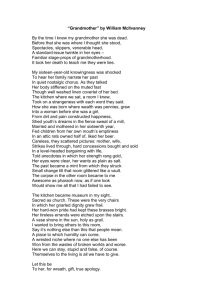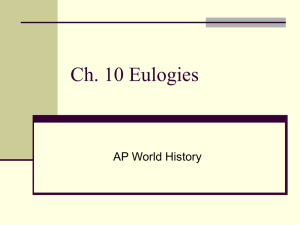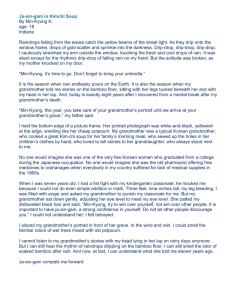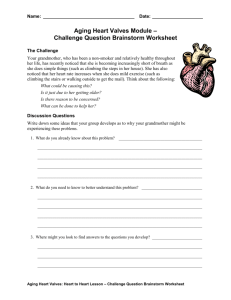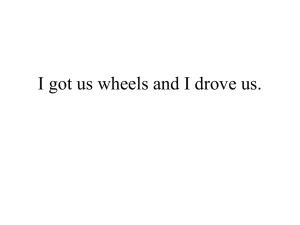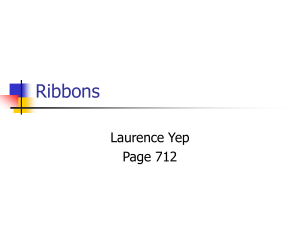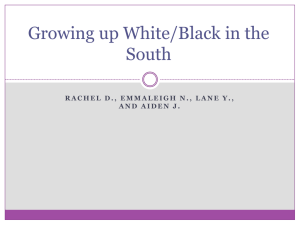The Dirty English
advertisement
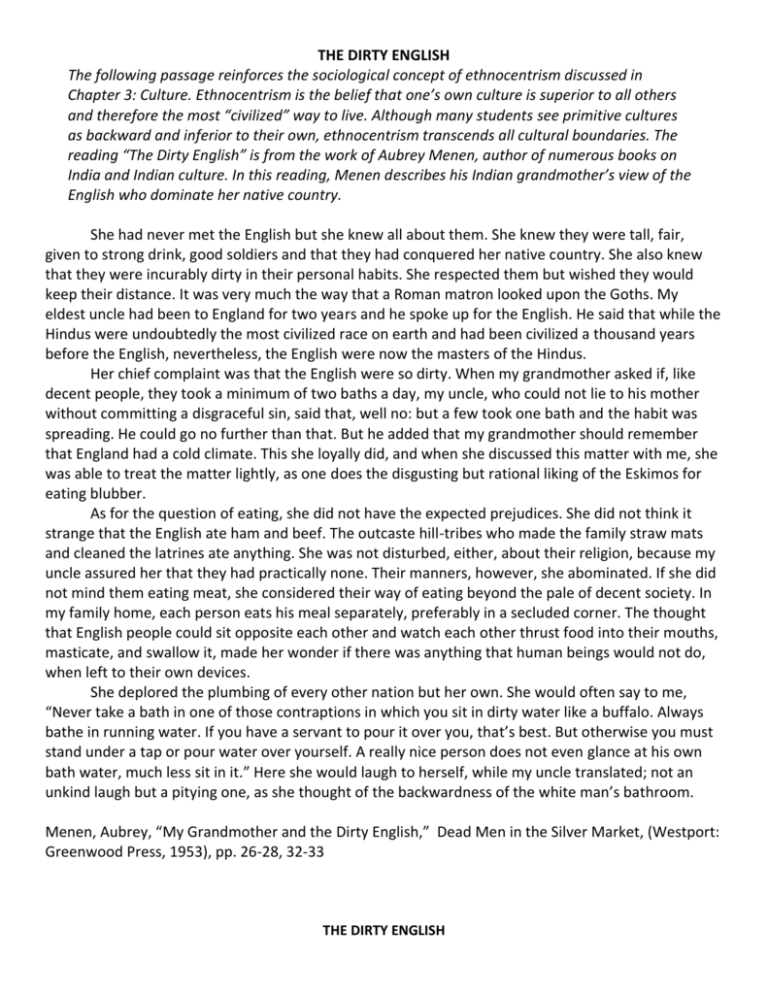
THE DIRTY ENGLISH The following passage reinforces the sociological concept of ethnocentrism discussed in Chapter 3: Culture. Ethnocentrism is the belief that one’s own culture is superior to all others and therefore the most “civilized” way to live. Although many students see primitive cultures as backward and inferior to their own, ethnocentrism transcends all cultural boundaries. The reading “The Dirty English” is from the work of Aubrey Menen, author of numerous books on India and Indian culture. In this reading, Menen describes his Indian grandmother’s view of the English who dominate her native country. She had never met the English but she knew all about them. She knew they were tall, fair, given to strong drink, good soldiers and that they had conquered her native country. She also knew that they were incurably dirty in their personal habits. She respected them but wished they would keep their distance. It was very much the way that a Roman matron looked upon the Goths. My eldest uncle had been to England for two years and he spoke up for the English. He said that while the Hindus were undoubtedly the most civilized race on earth and had been civilized a thousand years before the English, nevertheless, the English were now the masters of the Hindus. Her chief complaint was that the English were so dirty. When my grandmother asked if, like decent people, they took a minimum of two baths a day, my uncle, who could not lie to his mother without committing a disgraceful sin, said that, well no: but a few took one bath and the habit was spreading. He could go no further than that. But he added that my grandmother should remember that England had a cold climate. This she loyally did, and when she discussed this matter with me, she was able to treat the matter lightly, as one does the disgusting but rational liking of the Eskimos for eating blubber. As for the question of eating, she did not have the expected prejudices. She did not think it strange that the English ate ham and beef. The outcaste hill-tribes who made the family straw mats and cleaned the latrines ate anything. She was not disturbed, either, about their religion, because my uncle assured her that they had practically none. Their manners, however, she abominated. If she did not mind them eating meat, she considered their way of eating beyond the pale of decent society. In my family home, each person eats his meal separately, preferably in a secluded corner. The thought that English people could sit opposite each other and watch each other thrust food into their mouths, masticate, and swallow it, made her wonder if there was anything that human beings would not do, when left to their own devices. She deplored the plumbing of every other nation but her own. She would often say to me, “Never take a bath in one of those contraptions in which you sit in dirty water like a buffalo. Always bathe in running water. If you have a servant to pour it over you, that’s best. But otherwise you must stand under a tap or pour water over yourself. A really nice person does not even glance at his own bath water, much less sit in it.” Here she would laugh to herself, while my uncle translated; not an unkind laugh but a pitying one, as she thought of the backwardness of the white man’s bathroom. Menen, Aubrey, “My Grandmother and the Dirty English,” Dead Men in the Silver Market, (Westport: Greenwood Press, 1953), pp. 26-28, 32-33 THE DIRTY ENGLISH DIRECTIONS: Using information from the reading, answer the following questions. 1. Why did the author’s grandmother consider the English uncivilized? Discuss two “complaints” about English habits and manners that express the grandmother’s cultural ethnocentrism. 2. How did the author’s uncle attempt to defend the English? In your opinion, why is the uncle more tolerant of the English than the grandmother? 3. What customs and habits, considered by the grandmother to be civilized in her own culture, would have been considered backward or strange by an English citizen? 4. Find an example from the reading of the following sociology terms found in Chapter 3: a. folkway ________________________________________________________________ b. more ___________________________________________________________________ c. taboo __________________________________________________________________ d. values ___________________________________________________________________
